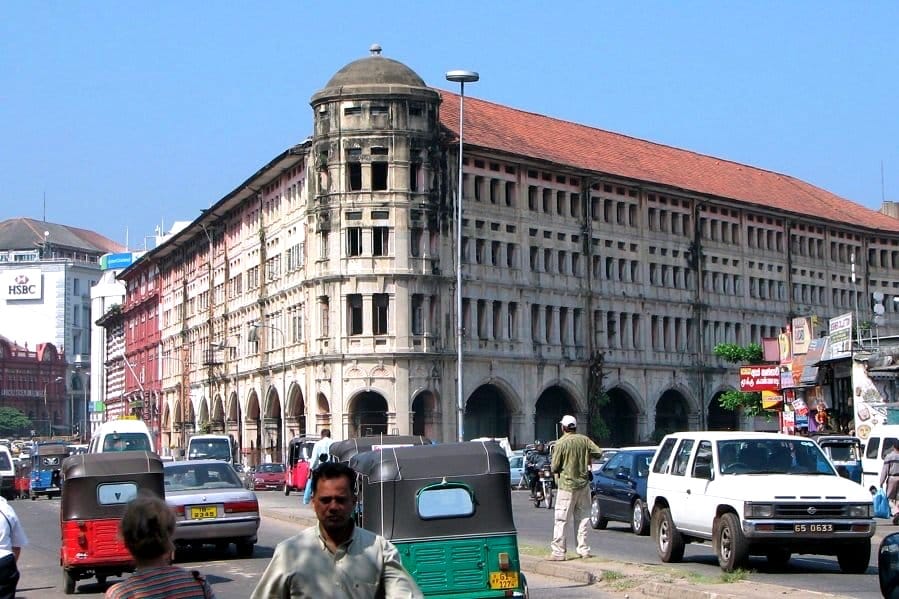Entitlement by Design: Colonial Pipelines and the Psychology of Precedence in Sri Lanka
Entitlement in Sri Lanka is a colonial inheritance — a system designed to reward proximity to power over merit. This essay explores how those hierarchies still shape behaviour and why true reform begins with psychological decolonisation.

How colonial hierarchies engineered a culture of precedence — and why dismantling entitlement requires more than policy reform; it demands psychological decolonisation.
Introduction: The Invisible Architecture of Privilege
Entitlement in Sri Lanka is not accidental — it is engineered.
It lingers in how we speak, defer, demand, and divide. It surfaces when authority expects obedience without accountability, and when citizens imitate privilege rather than question it. Entitlement here is not mere arrogance; it is a design feature — a behavioural legacy of systems built to reward proximity to power over the merit of contribution.
This essay examines how colonial administration, missionary education, and social codification created enduring psychological templates — pipelines of precedence — that continue to shape Sri Lanka’s institutions, leadership, and civic conduct.
Colonial Pipelines: How Power Learned to Flow Downwards
When the Portuguese arrived in 1505 — and later the Dutch and British — they extracted more than cinnamon or coffee; they extracted autonomy.
Colonial rule manufactured an intermediary class: local elites who imitated their masters to control their own people. These brokers became conduits of command — pipelines through which foreign hierarchies flowed.
By the nineteenth century, the British had perfected this structure. English fluency became intelligence; Western mannerisms became civility. A person’s worth was calibrated by resemblance to the coloniser. This was not admiration — it was institutionalised imitation, designed to secure obedience. Over time, it produced a behavioral infrastructure of precedence: who bows first, who sits higher, who speaks last.
The Psychology of Precedence
In psychology, precedence describes the hierarchy of recognition — who is seen first, heard first, and obeyed first. Colonial systems embedded this reflex into cognition.
The colonised learned to associate dignity with rank, not with conduct. A clerk felt superior to a labourer because he wore shoes; an officer felt quasi-divine because he wore a uniform. These signals became cognitive shortcuts — invisible hierarchies embedded in perception.
Independence did not erase this schema. Politicians replaced planters, yet the posture of power remained unchanged. Every institution — from bureaucracy to classroom — inherited the colonial choreography of command and submission.
Sociological Continuities: The Moral Economy of Entitlement
Sociologist Pierre Bourdieu called this habitus: the internalised culture that reproduces inequality through learned behaviour.
In Sri Lanka, entitlement has been moralised into respectability. Deference is rewarded; dissent is punished. The civil servant expects to be served; the teacher expects silence; the officer expects salutes. These are not personal vanities but social relics — rituals of hierarchy mistaken for order.
Historian Lona Devaraja’s research on missionary education in Ceylon revealed how English schools produced an “obedient elite” — intellectually trained to serve, not to question. Their successors, whether in government or commerce, still operate within that psychological design. Thus a bureaucracy addicted to precedence perpetuates itself: everyone waiting for someone higher to act.
Anthropology of Dependency: When Entitlement Becomes a Survival Code
Anthropologically, entitlement is also adaptive.
In systems where fairness is inconsistent, people learn that signalling importance offers protection. A driver invokes political connections to avoid a fine; an officer cites rank to evade scrutiny. These gestures, though corrosive, are rational in a context where visibility equates to safety.
Entitlement becomes a language — a social encryption that communicates belonging to the circle that matters. In post-colonial societies, this language replaces trust with fear, and citizenship with patronage. To survive, one must perform significance.
Cognitive Dissonance and the Myth of Modernity
Sri Lanka speaks of equality yet performs hierarchy.
The public venerates democracy but fears confrontation; leaders preach humility but practise dominance. This contradiction — what psychologists call cognitive dissonance — endures because the colonial pipeline of precedence was never dismantled, only repainted.
The whip became the motorcade. The plantation hierarchy became the corporate ladder. The chapel became the boardroom. Rituals of obedience survived every reform.
Modernisation, in other words, altered our technology, not our temperament. Until we understand that entitlement is architecture, not attitude, reform will remain ornamental.
Rewriting the Code: From Precedence to Participation
True decolonisation must therefore be psychological, not rhetorical.
The new struggle is not between East and West, but between imitation and authenticity. To rebuild trust, Sri Lanka must invert its reward system: honour contribution over connection, humility over display, collaboration over control.
Educationally, that means teaching children that confidence differs from superiority, and that leadership demands service, not licence. Institutionally, it means recalibrating respect around competence, not ceremony. Anthropologically, it means redefining worth as collective wellbeing rather than individual prestige.
Sri Lanka’s next renaissance will not come from new constitutions but from new conditioning.
Conclusion: Designing Dignity
Entitlement by design can only be undone by design.
A society built on precedence must consciously build participation. A people taught to obey must learn to self-govern.
The colonial pipeline that once carried hierarchy must now carry humility — from classrooms to ministries, boardrooms to homes.
Freedom is not the absence of masters; it is the presence of mastery — over ego, imitation, and inherited scripts.
To reclaim dignity, Sri Lanka must re-engineer its psychology with the same precision that the coloniser once engineered its compliance.
About the Author:
Alfie Ameer is the Founder & CEO of Vonfidel Group, Chair of VONFIDEL K9 and Vonfidel Ranch, and Principal Consultant at Cognisive Consultants. His research and fieldwork intersect leadership psychology, behavioural design, and institutional ethics — examining how cognition, conditioning, and colonial legacies shape modern governance and trust. He writes at Insights by Cognisive Consultants on leadership, security, and socio-cultural reform.
This article was originally published on Insights by Cognisive Consultants, a publication of Cognisive.co (a Vonfidel Group company). It may be cross-syndicated on Medium and Substack with canonical linking.

